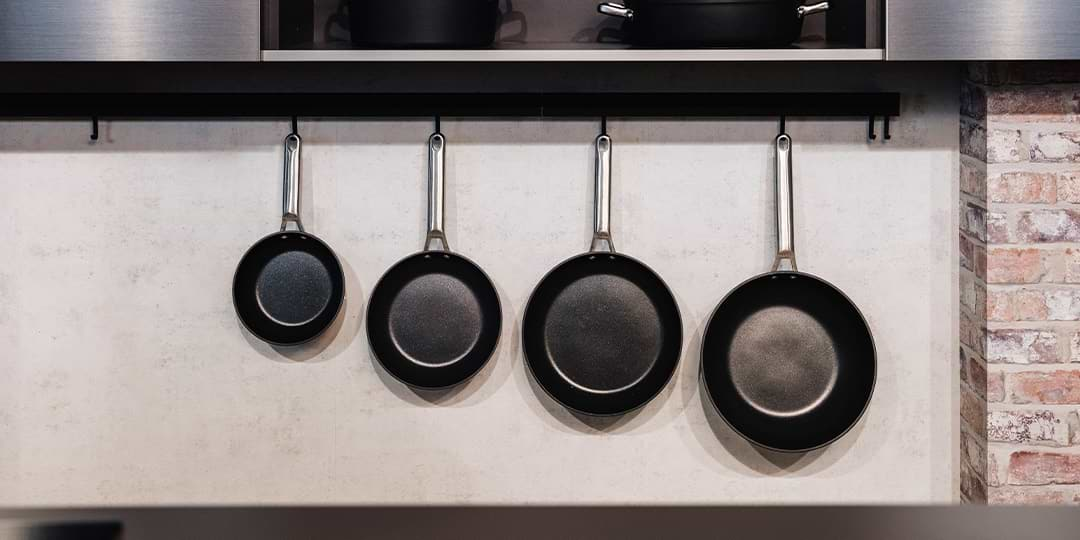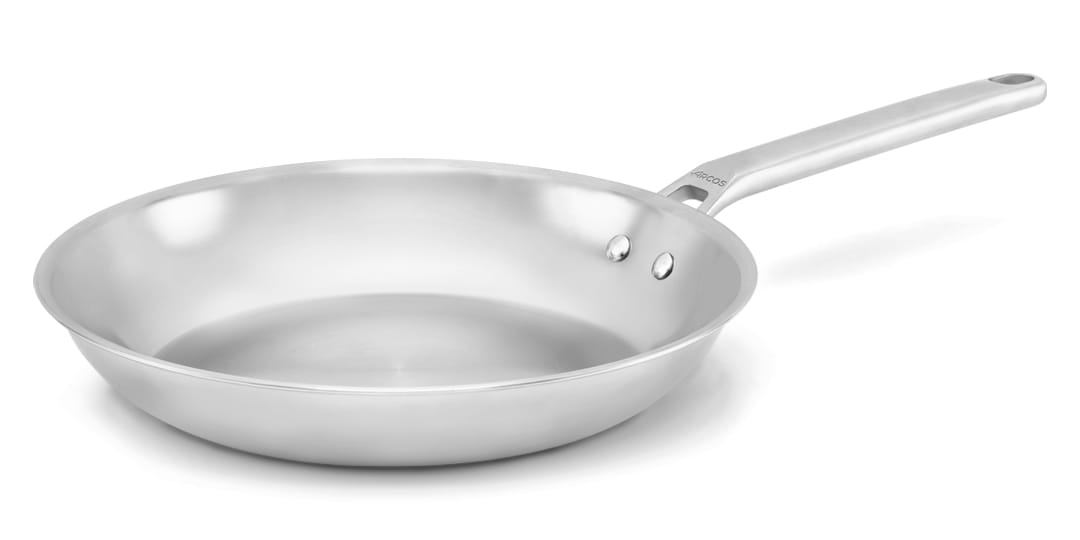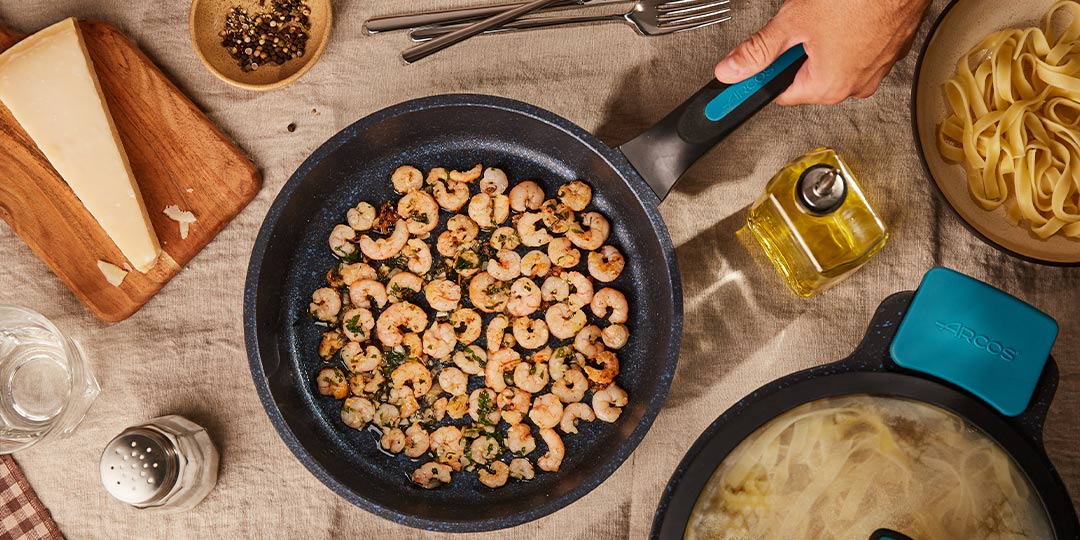How to Wash a Frying Pan to Make It Last Longer
Extending the lifespan of your utensils is more than possible if you’re able to follow some basic maintenance and cleaning guidelines. It may not seem important, but taking care of your kitchen tools is essential to prevent them from wearing out quickly and to ensure they perform at their best when preparing any of your favorite recipes.
One of the kitchen utensils that often causes the most headaches is frying pans. To save you from constantly buying new ones, we’ve prepared a basic guide on how to clean stainless steel, non-stick, or any other type of frying pan. Ready, chef? Let’s get started!
Step by Step: How to Wash a Frying Pan
Frying pan manufacturers always include information about the use, cleaning, and maintenance of their kitchen utensils. However, the reality is that almost no one reads this information, and it ends up in the trash or, at best, forgotten at the bottom of a drawer. We recommend that whenever you purchase a new frying pan, you follow the manufacturer’s instructions and make sure to wash, rinse, and clean it thoroughly before using it for the first time. That said, here are the steps to wash a frying pan:

Care and Tips for Proper Maintenance of Your Frying Pans
As you’ve just learned, not all frying pans are cleaned in the same way. Depending on the material, certain cleaning products will be more suitable than others. This is the most important thing you need to know for caring for the different frying pans you may have in your kitchen.
Cleaning Stainless Steel Frying Pans
hese types of frying pans are the easiest and most convenient to clean, as they can be washed by hand or in the dishwasher. It is normal for some marks or hard-to-remove stains to appear over time with use. Don’t worry, this is completely normal, but with the help of a cleaner or polish specifically designed for this type of material, you can eliminate them.

Cleaning Aluminum Frying Pans
It cannot be washed in the dishwasher. The best option is to clean it by hand with water and soap. If the aluminum becomes stained black, you can remove the stains by boiling acidic foods, such as a cut lemon, in water. Try it, and you’ll see how easily it comes off.
Cleaning Non-Stick Frying Pans
For this type of frying pan, you should not use metal kitchen utensils, as they would damage the surface. Opt for scrubbers specifically designed for non-stick coatings and, of course, do not wash them in the dishwasher, as harsh detergents and high temperatures weaken and wear down the non-stick coating.

Can I put my frying pan in the dishwasher?
Frying pans are one of the most difficult kitchen utensils to clean in the dishwasher. Not all materials are suitable for use in this appliance, as it is quite common for them to get damaged, causing oxidation and ruining their non-stick coating. Therefore, the best option is to wash them by hand with specific cleaning products and high-quality scrubbers. In short, you’ll need to roll up your sleeves after cooking and clean each frying pan you’ve used by hand.
The good news is that certain models, including stainless steel frying pans, are dishwasher safe. Our recommendation is to place them on their side or with the dirty side facing down in the bottom rack. This way, you’ll ensure they are thoroughly cleaned by the end of the wash cycle.
Now that you’ve learned how to wash a non-stick frying pan or one made from any other material, you have no excuse for not keeping them shiny and ready to cook like the first day. If you still have questions, remember that our experts are here to answer any questions you have about the proper maintenance of your frying pans.

